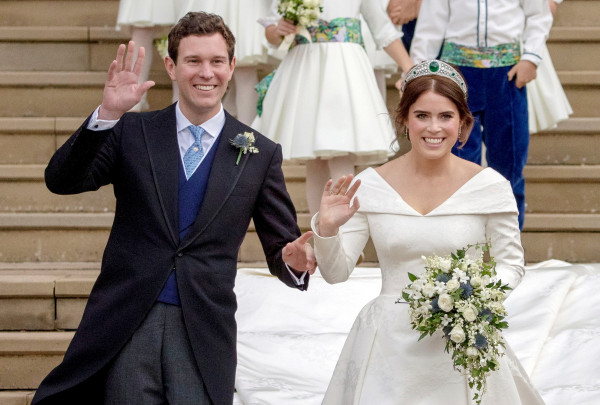Princess Eugenie, Zara Tindall Pregnancy: Royal Family's Line Of Succession To Change In 2021

Royal cousins Princess Eugenie and Zara Tindall, Queen Elizabeth, and Prince Philip's granddaughters are set to give birth this year, and the arrival of their newborns will change the British line of succession.
Eugenie, who is giving birth to her first child with husband Jack Brooksbank, is set for a date with the stork in February. On the other hand, Zara and her husband, Mike Tindall, expect to welcome their third baby in late May or early June.
Once born, baby Brooksbank will become the 11th in the line to the throne bumping the Queen's youngest son, Prince Edward, to the 12th spot. Everyone after Prince Edward will also be bumped a rank down.
Zara is currently 18th in the line of succession, before her uncle Edward, his children (Lady Louise and James, Viscount Severn), her mother, Princess Anne, her brother, Peter Phillips, and his kids (Savannah and Isla). She will become the 19th in line when Eugenie gives birth, and the arrival of her third baby, who will become 21st in line, will push back those on the next spots.
The Armstrong-Jones, who are Princess Margaret's children, as well as the Queen's cousins or Her Majesty's extended family, will take the 22nd to the 60th line of succession.
However, the British line of succession is only crucial for the first six spots, when it comes to actually take on the throne and rule the United Kingdom. Prince Charles, the first in line, will wear the crown upon the death of Queen Elizabeth. Charles will pass on this role to Prince William, his eldest son, in the event of his death.
Prince George, William's first-born, will automatically become the heir to the throne when his father is the new King. If George is of-age and has children by that time, his first-born will also be high up in the line of succession.
Assuming that Prince Charles and William will have short reigns and George is not yet of-age, Prince Harry, Charles' second born and the spare to William's heir, could take on the crown via the Regency Act. He will serve as the King until George is 18 years old.
The tragic fact is that for a high-ranking member of the British royal family to become the monarch or the regent, the ruler before him must be dead or incapacitated. However, this has never been a problem in recent times as Queen Elizabeth has reigned in the United Kingdom for the last 68 years and counting.
Source:Business Times














